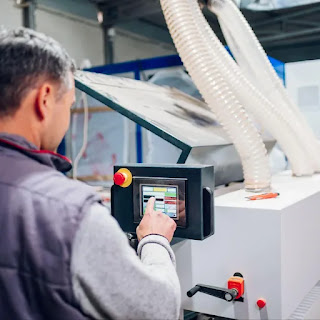Spunlace non-woven fabrics are taking the Indian market by storm. These versatile materials, made by entangling water jets with carded fibres, offer a unique combination of strength, absorbency, and softness. But what truly sets them apart is their potential for sustainability. Indian spunlace manufacturers are at the forefront of this movement, producing eco-friendly fabrics for a wide range of applications.
Leaders in Sustainable Production
Several Indian manufacturers are pioneering sustainable practices in spunlace production. They are:
Adopting recycled fibres: Many companies are incorporating recycled polyester, cotton, and wood pulp into their spunlace fabrics. This reduces reliance on virgin materials and minimizes landfill waste.
Minimizing water usage: Advanced technologies are being used to optimize water consumption during the manufacturing process. This not only conserves a precious resource but also reduces energy use for treatment.
Biodegradable options: Some manufacturers are exploring the use of bio-based fibres like bamboo and PLA (polylactic acid) in their spunlace fabrics. These materials offer a more sustainable end-of-life option compared to traditional fibres.
Leading the Way: Spunlace Manufacturers in India
India boasts several spunlace manufacturers committed to sustainability and innovation. Here are a few examples:
Welspun Living: A leading textile manufacturer, Welspun Living offers a range of spunlace fabrics for diverse applications, including filtration and hygiene products.
Samridhi Creation: Specializes in high-quality spunlace fabrics for wet wipes, wound care, and hygiene products, with a focus on eco-friendly production processes.
Favourite Fab: Known for their commitment to transparency and quality, Favourite Fab offers spunlace fabrics ideal for baby wipes and other hygiene applications.
Filantro First Exports Limited: A leading industry of spunlace manufacturers in India. A relatively new player, Filantro is making waves in the spunlace industry. Established in 2020, they specialize in cross lapped spunlace fabric, a unique type known for its strength and isotropic properties (equal strength in all directions). Filantro leverages advanced technology and focuses on sustainable practices, offering innovative solutions for various industries like hygiene, medical, and automotive. Their vision is to become a world leader in spunlace nonwoven production.
Benefits of Spunlace for Sustainability
Spunlace fabrics themselves offer inherent sustainability advantages:
Durability: Spunlace fabrics are known for their strength and reusability. This translates to fewer single-use products and a longer lifespan for items like wipes and cleaning cloths.
Biodegradability: Many spunlace fabrics, particularly those made from natural or bio-based fibres, are biodegradable. This means they decompose naturally at the end of their useful life, minimizing environmental impact.
Washability: Certain spunlace fabrics can be washed and reused, further reducing waste compared to disposable alternatives.
Applications Driving Sustainability
The use of spunlace fabrics in various applications contributes to a more sustainable future:
Wet wipes: Spunlace is a popular choice for baby wipes, makeup wipes, and other personal care products. Sustainable spunlace options offer an eco-conscious alternative to conventional wipes.
Medical wipes and gowns: The medical field heavily relies on disposable wipes and gowns. Spunlace fabrics made from recycled or bio-based materials can provide a more sustainable solution while maintaining hygiene standards.
Industrial wipes and cleaning cloths: Reusable spunlace cloths can significantly reduce waste generated by disposable cleaning products in industrial settings.
The Future of Spunlace in India
The Indian spunlace industry is poised for significant growth, driven by rising demand for sustainable and eco-friendly products. As manufacturers continue to innovate and refine their processes, spunlace fabrics will play a key role in creating a more sustainable future for India and the world.
Looking Ahead: Challenges and Opportunities
While the future looks bright for spunlace, some challenges remain. Raising consumer awareness about the sustainability benefits of these fabrics is crucial. Additionally, ensuring the widespread availability of recycling infrastructure for used spunlace products will be essential for maximizing their eco-friendly potential. By addressing these challenges and capitalizing on the vast opportunities, Indian spunlace manufacturers can solidify their position as leaders in the global market for sustainable non-woven fabrics.

Comments
Post a Comment